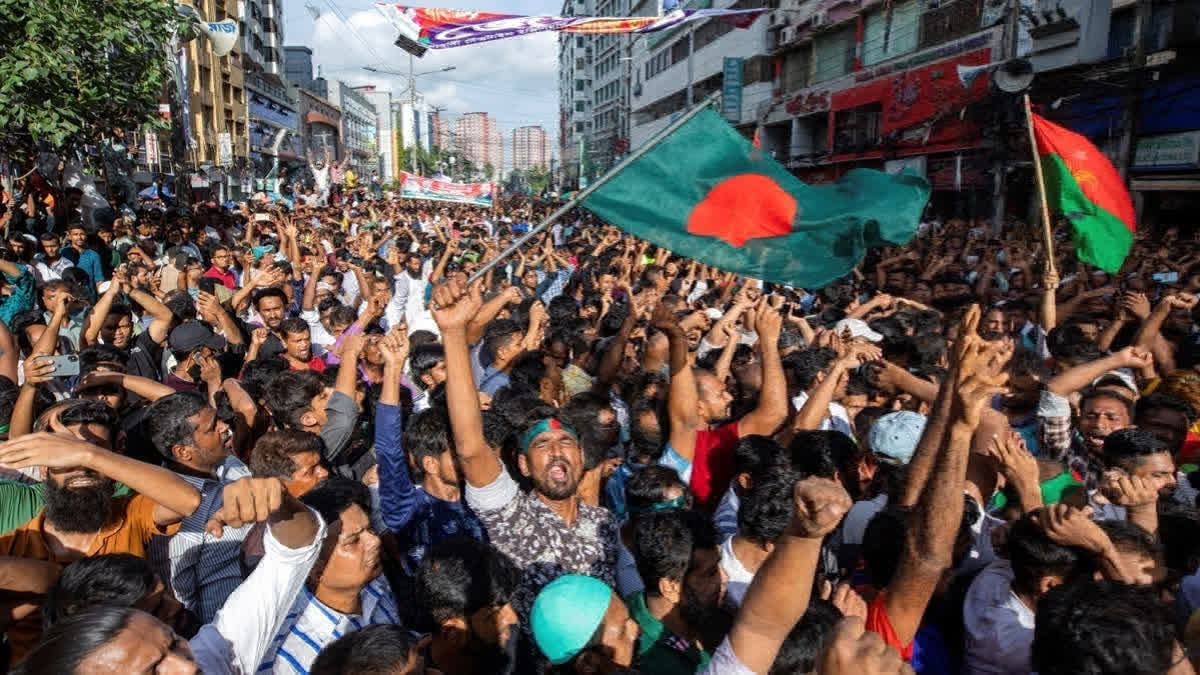New Delhi: With Bangladesh Nationalist Party (BNP) Secretary General Mirza Fakhrul Islam stating on Monday that the public would not tolerate an interim government staying in power for a long time, the focus is again back on the effectiveness and excesses under past caretaker governments in India’s eastern neighbour.
“One survey claims that 80 percent of the people want this government to stay as long as it pleases,” the Daily Star quoted Fakhrul as saying during a discussion. “I don't know where or how they got this, but the people will never accept this.”
He warned that saying or reporting such things should be done thoughtfully to avoid creating confusion. He also expressed concern over the activities of certain groups aiming to prolong the interim government’s tenure.
“Several organisations and groups have already started working to keep this interim government in place indefinitely,” he said. “If they make all the changes and implement the reforms, there will be no need for the public or the parliament,” he added.
The current interim government in Bangladesh assumed power on August 8 after Prime Minister Sheikh Hasina of the Awami League had to flee the country on August 5 after a mass anti-government uprising that was initially sparked by a students’ movement seeking job quota reforms.
Following the dissolution of the 12th Jatiya Sangsad on August 6, the interim cabinet assumed power until a new prime minister is appointed after a snap general election. The government was extra-constitutional. However, the Appellate Division of the Supreme Court of Bangladesh affirmed the legality of the stopgap government on August 9 citing the urgent need to manage state affairs and address the constitutional vacuum as has been the case in the past too.
Ironically, it was Hasina’s refusal to install an interim government as demanded by the BNP and other opposition parties ahead of the parliamentary elections in January this year that eventually led to her ouster. Due to her refusal, major opposition parties, including the BNP, had boycotted the elections. As a result, the Hasina’s Awami League romped back to power for the fourth consecutive time.
However, following the elections, there was an undercurrent of revolt against what observers deem as Hasina’s autocratic manner of running the government. The eventual explosion of a mass uprising led to her ouster and the installation of an interim government with noted economist, banker and Nobel Laureate Muhammad Yunus as the Chief Advisor.
President Mohammed Shahabuddin administered the oath of office to Yunus and his council of advisers at Bangabhaban on August 8. The cabinet currently consists of one chief advisor, 19 advisors and two special assistants to the chief advisor.
However, this is not the first time that an interim government has been installed in Bangladesh. Interim governments in Bangladesh, commonly known as “caretaker governments”, have played a significant role in the country’s political history, especially in ensuring free and fair elections. The caretaker system emerged as a response to the persistent political instability and distrust between major political parties, particularly the Awami League and the BNP. These governments were formed with the sole purpose of overseeing general elections without partisan interference. While initially successful in maintaining peace and fair elections, the system’s later years were marked by controversy, leading to its eventual dissolution.
Elections in the 1980s and early 1990s were marred by allegations of fraud, vote rigging, and misuse of state resources. This widespread mistrust between parties made it impossible for any election to be accepted as free and fair.
The demand for a neutral caretaker government gained momentum after the controversial 1991 elections. The opposition, led by the Awami League, claimed that the elections had been rigged by the BNP, which had come to power. Following months of protests and political violence, a compromise was reached between the two major parties. This agreement led to the formal introduction of a non-partisan caretaker government system through the 13th Amendment to the Constitution in 1996.
The caretaker government was a temporary, non-partisan administration, headed by a retired chief justice of the Supreme Court. Its sole function was to administer and oversee general elections, ensuring that they were conducted in a free and fair manner. The caretaker government had no legislative powers and could not undertake any long-term policy measures; its primary role was to maintain law and order and ensure the neutrality of the election process.
The caretaker government had to hold elections within 90 days, and hand over power to the newly-elected government within 120 days. The system worked on the premise that it was an impartial entity with no vested interest in the election outcome, and thus could act as a safeguard against the incumbent government using state resources to manipulate the election results.
The caretaker government system was first implemented during the 1996 general elections. After months of political deadlock, the BNP government led by Prime Minister Khaleda Zia stepped down, allowing a caretaker government under Justice Muhammad Habibur Rahman to take charge. This election was widely considered to be free and fair, with the Awami League, led by Hasina, emerging victorious.
